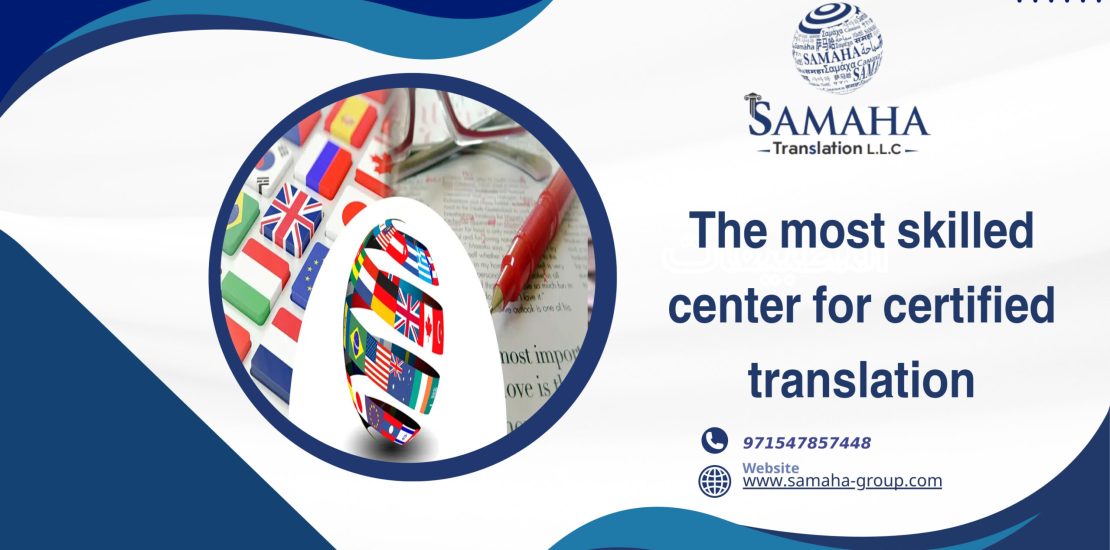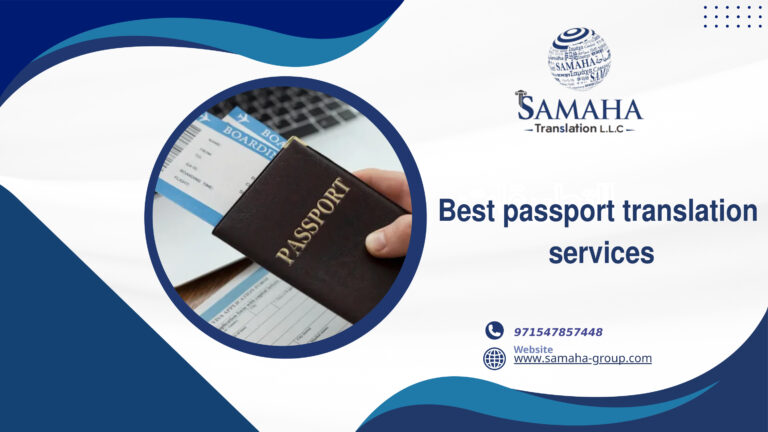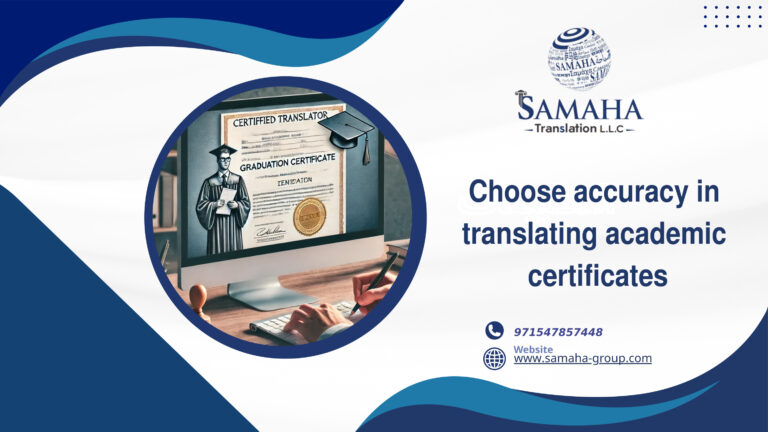Certified Translation: Definition and Importance
Certified translation is the process of converting texts from one language to another with accuracy and reliability based on specific standards and requirements set by a recognized authority. This type of translation is used for official and legal documents such as government papers, medical records, marriage and birth certificates, academic transcripts, and many other documents that require certified translation from an accredited translation center.
The recognized authority is typically the body that certifies these translations to ensure the accuracy and correctness of the translated content. Certified translation holds great importance for legal, administrative, and academic purposes, as it must meet specific standards to be legally valid and officially recognized.
The certified translation process also requires specialized skills and a deep understanding of both the source and target languages and cultures. It involves precise procedures to meet legal and security requirements. Due to its commitment to accuracy and quality, certified translation is essential for ensuring the reliable exchange of information between languages in various contexts.
Fields of Translation Offered by a Certified Translation Center
Certified translation centers offer services across a wide range of fields and specialties. Some of the main areas include:
-
General Translation: Translating general texts such as emails and personal documents.
-
Legal Translation: Translating legal documents such as contracts, court documents, and intellectual property documents.
-
Medical Translation: Translating medical reports, personal medical files, and medical research.
-
Technical Translation: Translating technical documents such as user manuals, engineering documents, and programming materials.
-
Literary Translation: Translating literary works such as novels, short stories, and poetry.
-
Scientific Translation: Translating research papers and academic studies in various scientific disciplines.
-
Economic Translation: Translating financial and economic reports and documents.
-
Tourism Translation: Translating tourism-related content and advertisements for the travel industry.
-
Editing and Proofreading: Editing and refining translated texts to ensure accuracy and completeness.
-
Interpretation: Providing verbal translation services for conferences and meetings.
Keep in mind that translation needs may vary based on the client’s goals and preferences. In many cases, a certified translation center can provide hybrid services that combine multiple fields according to the requirements.
Why Do Businesses and Individuals Seek Certified Translation Centers?
Companies and individuals turn to certified translation centers for several reasons, including:
-
Professionalism: Certified centers offer high-quality, professional translation services, ensuring accuracy and reliability by field experts.
-
Accuracy: Accurate translation is crucial, especially in legal, medical, and technical fields. Certified centers have experience handling complex terminology and sensitive content.
-
Compliance with Regulations: Some documents legally require certified translation. Certified centers adhere to strict regulations and standards.
-
Confidentiality: Certified centers follow stringent procedures to protect information and prevent unauthorized access.
-
Time and Effort Saving: Doing the translation yourself or using uncertified services can be time-consuming and exhausting. Certified centers save time and effort by providing efficient, accurate service.
-
Meeting Deadlines: Companies and individuals often need urgent translations. Certified centers provide timely delivery.
-
Official Translation: Some documents require official certification by an accredited translator for legal or administrative use. Certified centers can provide this.
In general, certified translation centers offer reliability, quality, and professionalism, making them essential for anyone seeking accurate, officially recognized translation services.
How Much Does Certified Translation Cost?
The cost of certified translation depends on several factors, including:
-
Document Type: The nature of the document plays a major role in determining the cost. Complex documents like legal contracts or medical reports are more expensive than general texts.
-
Language Pair: The language combination affects the price. Translating from or into rare or less common languages is typically more expensive than well-known ones.
-
Volume and Complexity: The size and complexity of the document can influence the cost. Larger or more technical documents require more time and effort.
-
Urgency: If you need the translation urgently, this may raise the cost due to the additional resources required.
-
Certification Requirement: Certified and official translations usually cost more because they require the translator to be officially accredited.
-
Provider Pricing Policy: Each certified translation provider may have their own pricing strategy, so prices can vary between translation offices.
When searching for certified translation services, it’s important to compare different providers and request a price quote for your specific documents. Pricing may be per page, per word, or per hour, depending on the provider and the project.
What Are the Signs of a Top Certified Translation Center?
Several indicators can help identify a top-quality translation center, including:
-
Accreditation and Certifications: Check if the center is certified by a recognized authority or organization. Certifications like ISO 17100 indicate high standards.
-
Experience: Look into the center’s background and experience. Reputable and well-established centers are generally more reliable.
-
Specialization: Choose a translation center that specializes in your field or document type. Specialized translations require domain-specific knowledge.
-
Quality and Proofreading: Ask for previous samples or read client reviews to evaluate service quality, accuracy, and proofreading capabilities.
-
Timely Delivery: Ensure the center can commit to and meet deadlines.
-
Confidentiality and Security: Make sure the center has strict measures in place to protect your information.
-
Cost: Compare different centers to find one that suits your budget and expectations.
-
Technology: A modern center should use up-to-date translation tools and software to ensure efficiency and accuracy.
-
Service Availability: Confirm that the center offers a variety of services to meet your needs, including certified translations if required.
-
After-Sales Support: Check whether the center provides support for any issues or revisions after delivery.
In short, finding the right certified translation center requires careful research and comparison to ensure you get excellent quality and service that meets your needs.
Contact the Best Certified Translation Center Now – Ask About Certified Translation Discounts
When it comes to certified translation, accuracy and reliability are essential. Samaha Certified Translation Center is your best choice for precise, dependable translation that meets your needs perfectly. We take pride in our experience and certification in the language services field and are committed to delivering accurate, certified translations in a timely and competitively priced manner.
By choosing Samaha Certified Translation, you’re choosing professionalism and quality. We offer tailored translation services across various languages and industries. Our expert team ensures your documents are handled with the utmost confidentiality and security.



